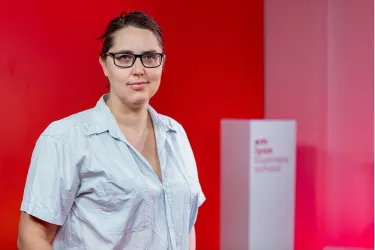Fanny Verrax appointed Associate Dean for Anthropocene Pedagogy
emlyon business school reaffirms its pioneering role in teaching environmental and societal challenges by appointing Fanny Verrax as Associate Dean for Anthropocene pedagogy, as announced in the strategic plan Résonances. She succeeds Thomas Gauthier. A professor specializing in ecological transition and social entrepreneurship, Fanny Verrax is particularly recognized for her research on mineral resource governance, the challenges of a post-growth society, and the emotional dimensions of the Anthropocene.
Training responsible leaders in the Anthropocene era
This appointment comes at a crucial time, as the scientific community confirmed in June 2025 that a seventh planetary boundary has been crossed. This highlights the urgent need for pedagogy that goes beyond climate change to encompass the full range of threats facing our planet: biodiversity collapse, deforestation, freshwater cycle disruption, chemical and plastic pollution, among others.
The Anthropocene — this new geological era defined by the significant impact of human activity on Earth — provides a theoretical and operational framework to guide emlyon’s pedagogical initiatives toward a systemic, critical, and pragmatic approach. Alongside her responsibilities as academic lead for the core course “Act for the Planet” and Academic Director of the Responsible Commitment Program, Fanny Verrax will act as a catalyst by mobilizing the school’s collective intelligence to address ecological and societal challenges.

I am honored to succeed Thomas Gauthier as Associate Dean for Anthropocene Pedagogy. In the context of today’s global challenges, it is essential to adopt a systemic and proactive approach to educate responsible leaders. My goal is to transform this mission into a genuine driver of innovation and action, fostering synergies between students, faculty, and staff.
In this way, emlyon business school continues its mission to educate enlightened and responsible leaders, able to think and act sustainably by fully integrating the major challenges of the Anthropocene into all pedagogical dimensions.